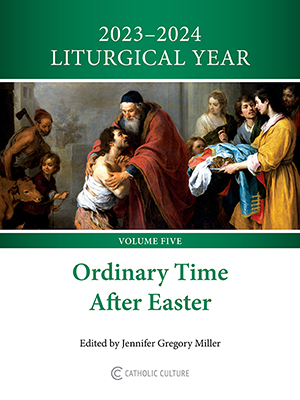Tonight’s the anniversary; celebrate the fall of the Berlin Wall
By Phil Lawler ( bio - articles - email ) | Nov 09, 2017
On this date—November 9—in 1989, the Berlin Wall came down. If you are too young to remember that event, I probably cannot convey to you the intense joy, mingled with incredulity, that I felt as I watched it happen. To this day it remains the most astonishing historical event that I have witnessed.
That hideous wall—a concrete-and-barbed-wire scar running through the heart of a city—was a vivid symbol of Communist brutality. Since we are also commemorating the 100th anniversary of the Russian revolution, it is timely to think of the brave young Germans who were killed trying to climb that wall, gunned down for the offense of trying to escape an inhumane and tyrannical system.
The Wall was not only a gross offense against decency; it was also a candid admission, by East German authorities, that countless thousands of their citizens would emigrate if they could—if they were not, in effect, locked in behind the border. When the Wall went up, Communist officials made no attempt to justify it. They built it because they could build it: because no one could stop them. The Wall bore testimony to the logic of untrammeled power, to the Communist penchant for doing whatever it took, regardless of moral norms, to secure their regime.
Yes, a few people escaped, despite the formidable obstacles in Berlin and elsewhere along the border. But others—a much larger number—lost their lives in the bid for freedom. And far, far more concluded that it was futile to make the attempt: futile to do battle against the seemingly limitless power of the regime. The Soviet empire had already killed tens of millions of people in its drive for world power; there was no reason to doubt that it was preparing to kill tens of millions more.
Indeed, growing up during the Cold War, I was acutely aware that those preparations were actually underway. The possibility of nuclear war did not seem at all remote. (I can recall the day when, on the way to school, my grammar-school classmates discussed the odds that we would all be dead by nightfall; we children were acutely aware of the Cuban missile crisis.) We lived in a bipolar world, in which every international issue was seen against the background of the great geopolitical contest between the free world and Communism. That conflict shaped our thinking; we assumed that the struggle would continue indefinitely.
Then in the 1980s the first fissures appeared in the Soviet monolith; it became evident that the fearsome giant had feet of clay. And eventually there came that incredible evening when young Berlin residents climbed on the Wall, tearing off chunks of concrete, in a party atmosphere, with music blaring in the background. Even as I watched, I had trouble believing that it was really happening; the scene was surreal.
How did it happen? After years of mercilessly shooting down anyone who even approached the Wall, why did the Communist authorities let these playful kids destroy it? What had happened to the implacable resolve of the Party ideologues, the unassailable power of the Communist state?
The simple answer, I would argue, is that in the end Communism collapsed because the people refused to accept the legitimacy of the regime. There had been resistance all along, of course, but the resistance never reached the mainstream. Tens of thousands of dissidents were sent off to the gulags, and again the regime was prepared to send off tens of thousands more. But when tens of millions of people were ready to acknowledge that Communist was a fraud, there were not enough spaces on the trains to Siberia. During the 1980s a combination of factors (the resolve shown by Reagan and Thatcher, the inspiration given by John Paul II, the rise of the Solidarity movement) exposed the lies of Communist propaganda, the poverty of Communist ideology. The people living behind the Iron Curtain recognized that their governments were illegitimate. In the long run, no regime—no matter how powerful, no matter how brutal—can survive when its people deny its legitimacy.
This month, as we remember the dead, say a prayer for the more than 100 million victims of Communism, and especially for those who died fighting against that monstrous regime. And tonight, please join me in raising a glass to celebrate the fall of the Berlin Wall.
All comments are moderated. To lighten our editing burden, only current donors are allowed to Sound Off. If you are a current donor, log in to see the comment form; otherwise please support our work, and Sound Off!









